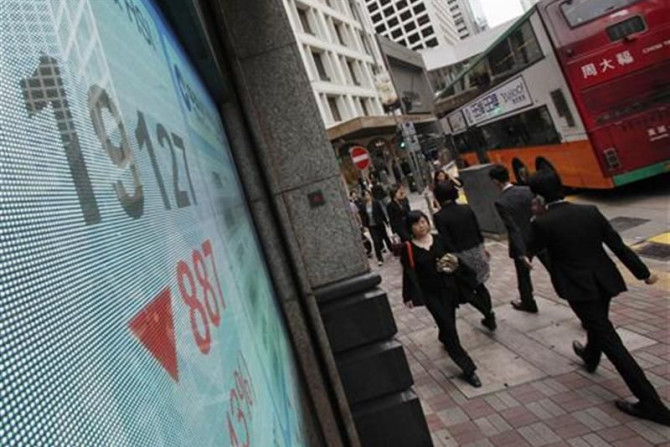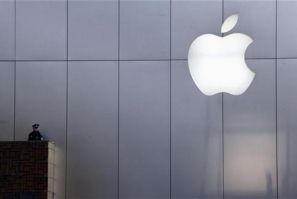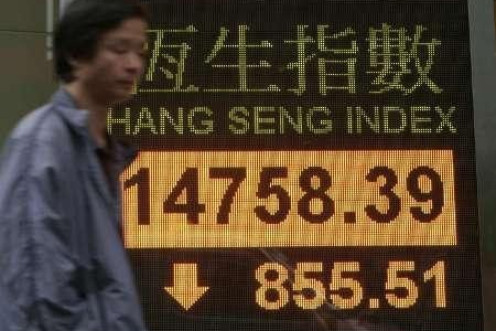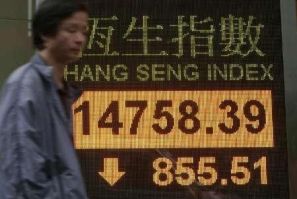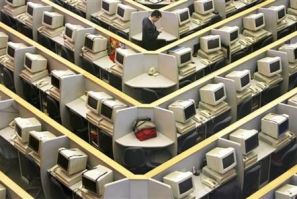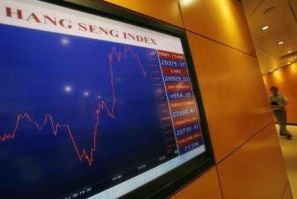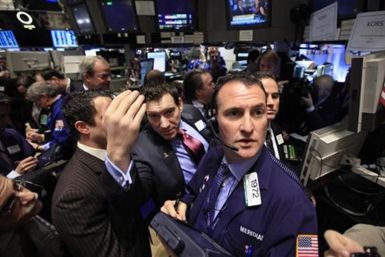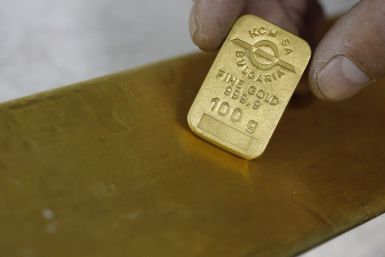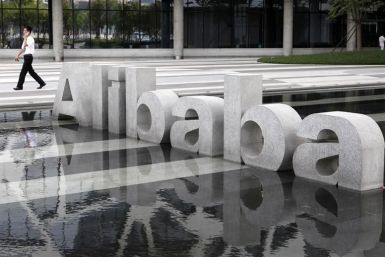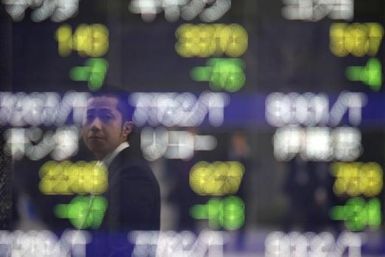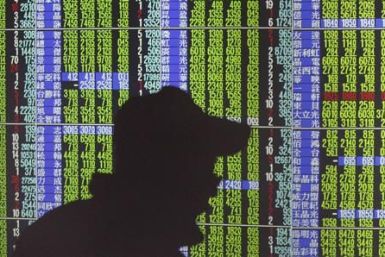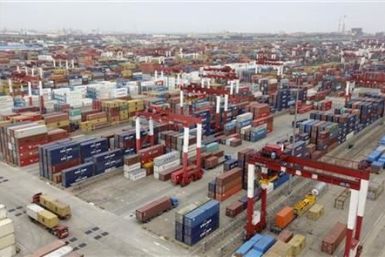After closing the book on a wild and nerve-wracking year, investors greeted the first trading day of the year with a wide rally Tuesday -- bidding up equities, commodities and other risky assets across the board.
Asian stocks plunged Friday, following overnight declines on Wall Street, after the European Central Bank gave no indication of more government bond buying.
Asian stocks mostly ended on a positive note Monday ahead of Franco-German summit in Paris aimed at halting contagion from Europe's growing debt crisis.
Asian shares rallied to two-week highs Thursday, building on strong global gains after the world's six major central banks moved to tame a liquidity crunch for European banks by providing cheaper dollar funding.
Gold prices fell Friday in what appeared to be their second straight weekly retreat in the face of a Eurozone crisis, which after two years has yet to be contained, let alone solved, and now threatens Europe's financial liquidity.
Alibaba.com, China's largest e-commerce firm, posted an 11.9 percent rise in quarterly net profit, its slowest growth in nearly two years, with the company raising concerns due to a weak trade outlook stemming from debt woes in Europe and the United States.
Asian stock markets ended lower on Wednesday, as concerns about Europe’s debt crisis offset better-than-expected reports on U.S. economy Tuesday.
Asian stock markets ended lower on Tuesday, as increased borrowing costs for Italy and Spain prompted fresh concerns that Europe could struggle to contain its debt crisis.
Asian shares fell on Tuesday, as a rise in euro zone bond yields reflected lingering doubts about the ability of politicians in Italy and Greece to push through painful reforms to resolve their debt crises and win market confidence.
High-end Chinese fashion retailer Ports Design Ltd said on Monday that it is on track to achieve its 10 percent network expansion target for 2011.
Asian stocks fell around 3 percent on Thursday after soaring Italian borrowing costs stoked fears that the debt crisis in the euro zone's third biggest economy will overwhelm its financial defenses, raising the risk of a break-up of the currency area.
Asian stocks fell sharply Thursday after soaring Italian borrowing costs stoked fears the debt crisis in the euro zone's third biggest economy will overwhelm its financial defenses, raising the risk of a break-up of the currency area.
European shares looked set to follow Asian equities higher Wednesday and the euro steadied after Italian Prime Minister Silvio Berlusconi said he would resign, raising hopes the debt-ridden country would proceed with reforms that may keep Europe's debt crisis from spreading.
Asian shares rallied more than 3 percent and the euro steadied Friday on hopes that Greece will abandon a proposed referendum on a European Union bailout, but investors remained cautious over a confidence vote scheduled for later in the Greek parliament.
Asian shares rose more than 2 percent and the euro steadied Friday on hopes that Greece will abandon a proposed referendum on a European Union bailout, but investors remained cautious over a confidence vote planned in the Greek Parliament.
Asian shares and commodities fell Tuesday, after a shock announcement that Greece will hold a referendum on a new EU bailout deal for the debt-ridden country threw efforts to resolve the euro zone's debt crisis into fresh doubt.
Renewed worries about the slow progress in resolving the euro zone's debt crisis dampened investor appetite for risk, sending Asian shares and commodities lower Tuesday while keeping pressure on the euro.
Asian shares fell Monday and commodities slipped as the dollar spiked to a three-month high against the yen following Japan's intervention, prompting investors to book profits after last week's rally.
U.S. stocks are outperforming emerging market stocks. They have outperformed in 2011 and have done so since early 2010.
China's economic expansion slowed in the third quarter to its weakest pace in more than two years as euro-debt strains and a sluggish U.S. economy took a toll, but healthy domestic drivers suggest little room to relax monetary policy near term.
China's economic expansion slowed in the third quarter to its weakest pace in more than two years as euro-debt strains and a sluggish U.S. economy took a toll, but healthy domestic drivers suggest little room to relax monetary policy near term.
China's economic expansion slowed in the third quarter to its weakest pace since early 2009 as euro-debt strains and a sluggish U.S. economy took a toll, but healthy domestic drivers suggest little room to relax monetary policy near term.


